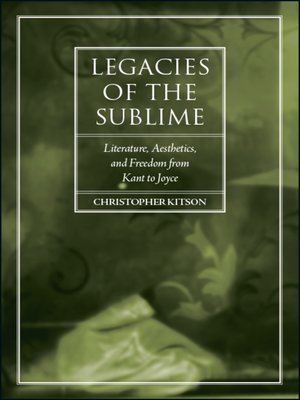Legacies of the Sublime
ebook ∣ Literature, Aesthetics, and Freedom from Kant to Joyce · SUNY series, Studies in the Long Nineteenth Century
By Christopher Kitson

Sign up to save your library
With an OverDrive account, you can save your favorite libraries for at-a-glance information about availability. Find out more about OverDrive accounts.
Find this title in Libby, the library reading app by OverDrive.



Search for a digital library with this title
Title found at these libraries:
| Library Name | Distance |
|---|---|
| Loading... |
Pairs literary works with philosophical and theoretical texts to examine how the Kantian sublime influenced authors in their treatments of freedom and subjectivity through the late nineteenth and early twentieth centuries.
Legacies of the Sublime offers a highly original, subtle and persuasive account of the aesthetics of the sublime in late nineteenth- and early twentieth-century literature, philosophy, and science. Christopher Kitson reveals the neglected history of how Kant's theory of the sublime in the Critique of Judgment cast a shadow over the next century and more of literature and thought. In each chapter, close readings weave together literary works with philosophical and scientific ones in order to clarify the complex dialogues between them. Through these readings, Kitson shows how the sublime survived well after the heyday of romanticism as a way of representing human freedom. This new context produces fresh interpretations of canonical literary works, by Thomas Carlyle, H. G. Wells, Joseph Conrad, and James Joyce, with reference to important theoretical texts by Karl Marx and Friedrich Engels, Arthur Schopenhauer, Friedrich Nietzsche, and Sigmund Freud. Kitson follows the sublime's various manifestations and mutations, through the nineteenth century's industrial grandeur and the vertiginous prospects of deep time, into the early twentieth century's darkly ironic and uncanny versions. A welcome contribution to the study of the long nineteenth century, this work reveals an unexamined chapter in intellectual history and in the story of the modern self.







